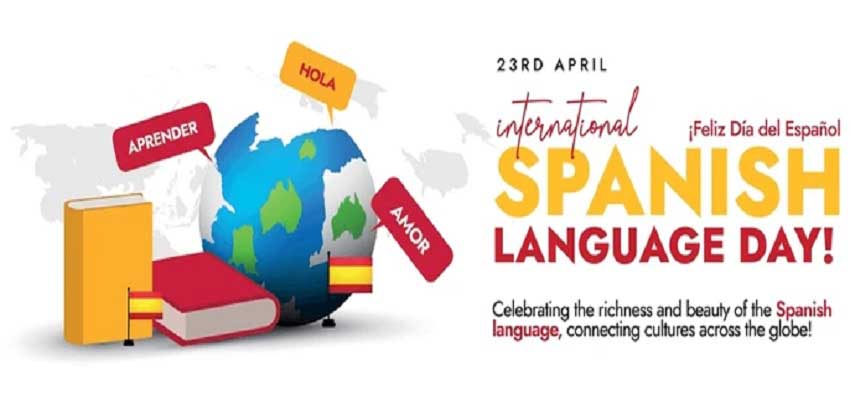
“Words are relics, sanctified by suffering and disfigured by passion," I once read in a book.
Around five thousand languages, subdivided into multiple dialects, speak of an ecosystem that we think we know, but it is not so. Like the tower of Babel, like the tip of an iceberg, it is an unfathomable but marvelous affair. Suffice it to say, if we travel back in time, many of the words that distinguish us today have centuries of evolution behind them; they have survived wars, egos, metamorphoses, and the unstoppable whip of time. And, in the process, some words disappeared or mutated, while others simply saw the light of day.
Books like Historia de la Lengua Española (by Rafael Lapesa) immerse us in that universe. We travel with him to the year 218 B.C., and we seem to see the Romans conquer the Iberian Peninsula (what today occupies territories such as Spain and Portugal) and sow Latin (especially its vulgar edge) in the conquered land.
Beyond roads, imposed laws, technological innovations, boosting trade, and all that the great empire reaped in its domain, it is interesting to study how the language was transformed over time. Thanks to Lapesa and other authors, we have learned from certain “survivors”. Those words that, clinging to a vernacular, indigenous, authentic language, endured despite everything. It is what he called “substrate facts”.
Therefore, we are heirs of many terms defended by our ancestors in the course of history. The pre-Roman settlers (those who were in the Iberian Peninsula before the conquest), for example, bequeathed us precious words such as barraca, charco, galápago, manteca, perro, and braga... And, just as the original peoples of ancient Hispania (as the Romans called the Peninsula) left a mark that splashes and envelops us, so did others linked, in some way, to the history of the territory.
In this way, they arrive: gallant, cable, garden, gala, reproach, forge? (named Galacisms); piropos, volumen, silvestre, belicoso... (Latin Idioms); novela, soneto, camposanto, carnaval, pantanoso, filigrana... (Italian Idioms); turrón, lineage... (Catalanisms); alphabet, bucolic, orthography, muse, siren, nard, bean and monopoly... (Hellenisms); pearl, milk, herd, interpreter, physicist, algorithm, alcohol, syrup, orange blossom, storehouse, elixir, lettuce... (Arabisms), among others.
So, when you speak or write, however briefly, feel that you are the owner of a living ecosystem, where you are also a paladin, even without knowing it. Our Romance languages (including Spanish) have their genesis precisely in those pre-Roman tribes and the Latin spoken later in conquered provinces. Do not mistreat the language. It is true that there are so-called Cubanisms, and that different areas of Cuba have their way of naming tamales, food storage jars, and even such basic utensils as the clothes stick and the mop. I am referring to those who, despite the existence of such beautiful words, bet on others who, far from contributing, disfigure, denigrate, and mistreat the language. It is better not to give examples of this. And not to mention certain reggaeton songs, which we already know are the hyperbole of this case.
Think about something: in a way, we are also words. If you help a neighbor, that comes down to being “supportive, altruistic, collaborative” ... If you say good morning, ask permission, or thank them, they will know you are “polite, courteous”. And so, we are spilling words at every step. “They” speak more about us than other avenues of communication, even those that are inferred. And remember: sometimes, no matter how beautiful words are, if they are not accompanied by deeds, as the saying goes, “they are carried away by the wind."
The poet Pablo Neruda said it well: “What a good language mine is, what a good language we inherited from the conquistadors... they were striding through the hills, through the rough Americas, looking for potatoes, sausages, beans, black tobacco, gold, corn..., with that voracious appetite that has never been seen in the world. They swallowed everything... We lost... We came out winners... They took the gold and left us the gold... They took everything and left us everything... They left us the words."





